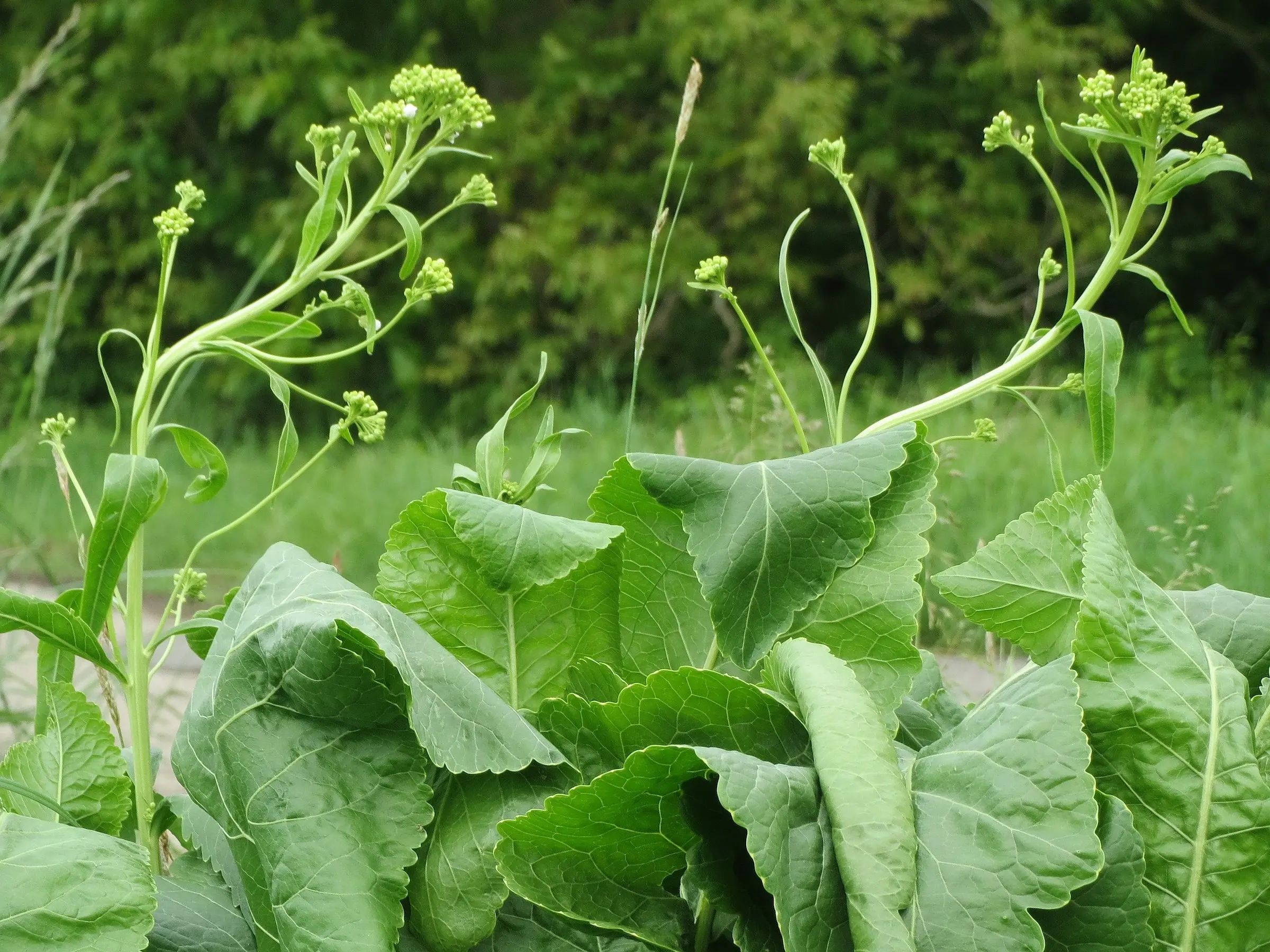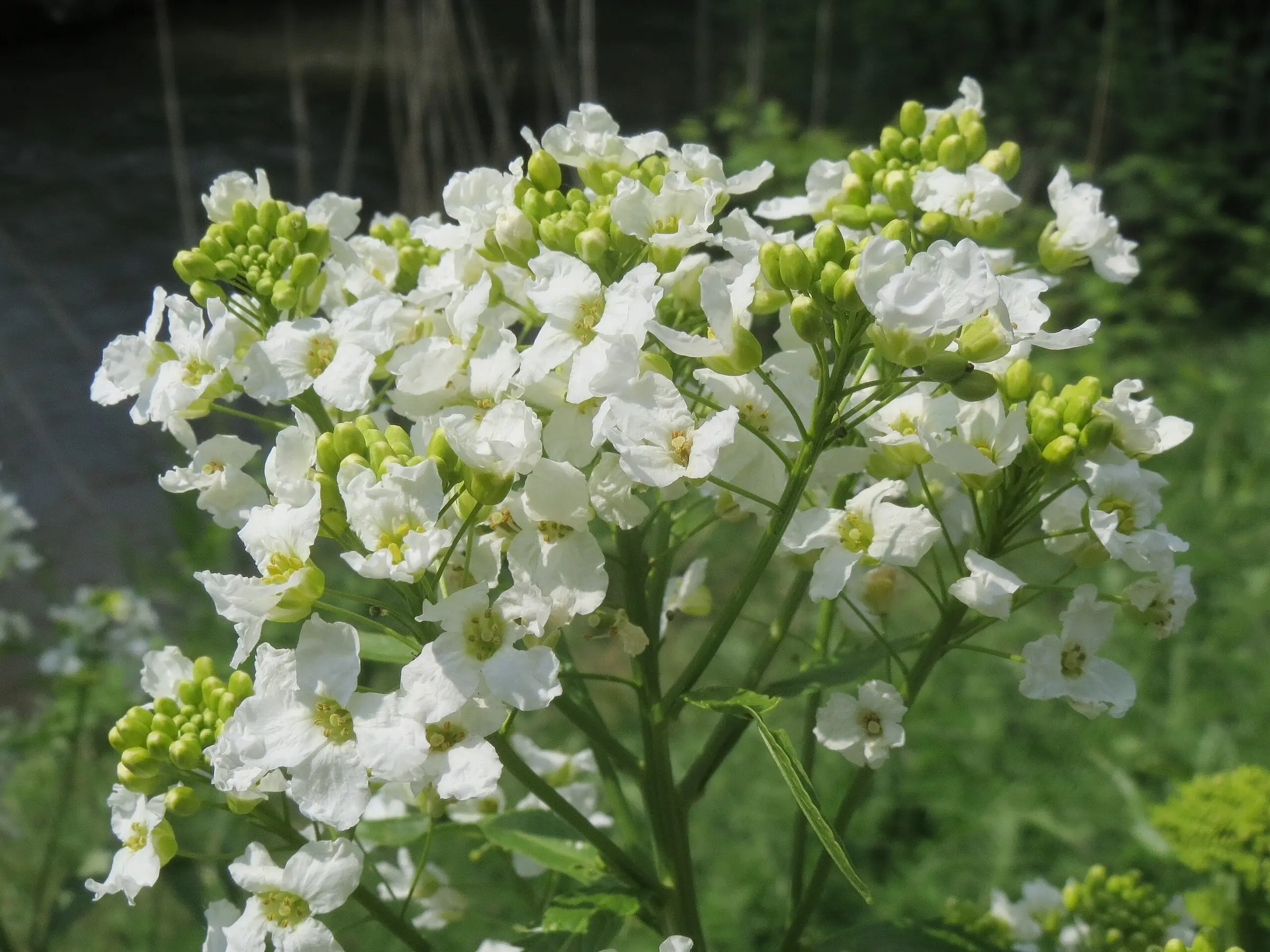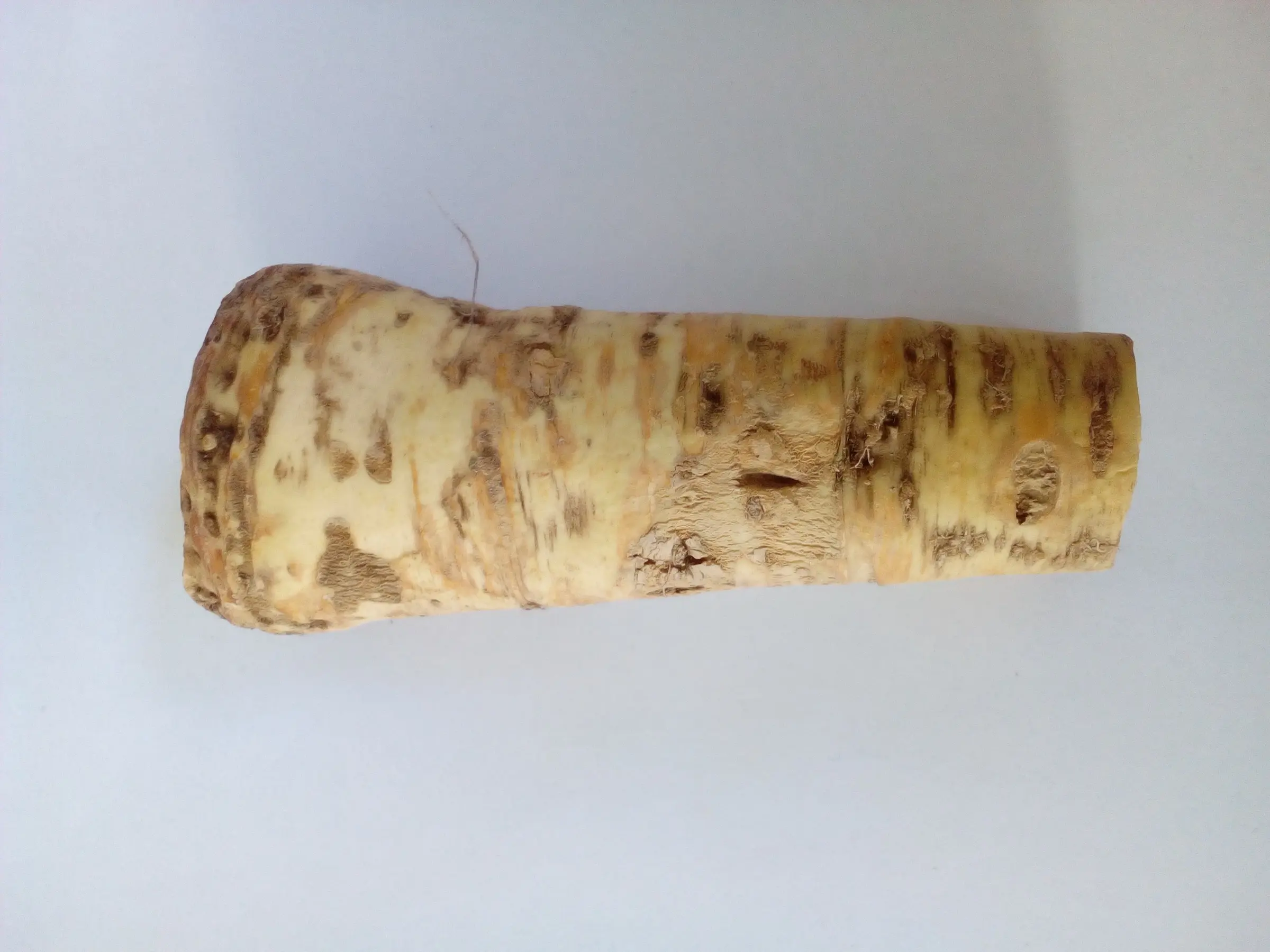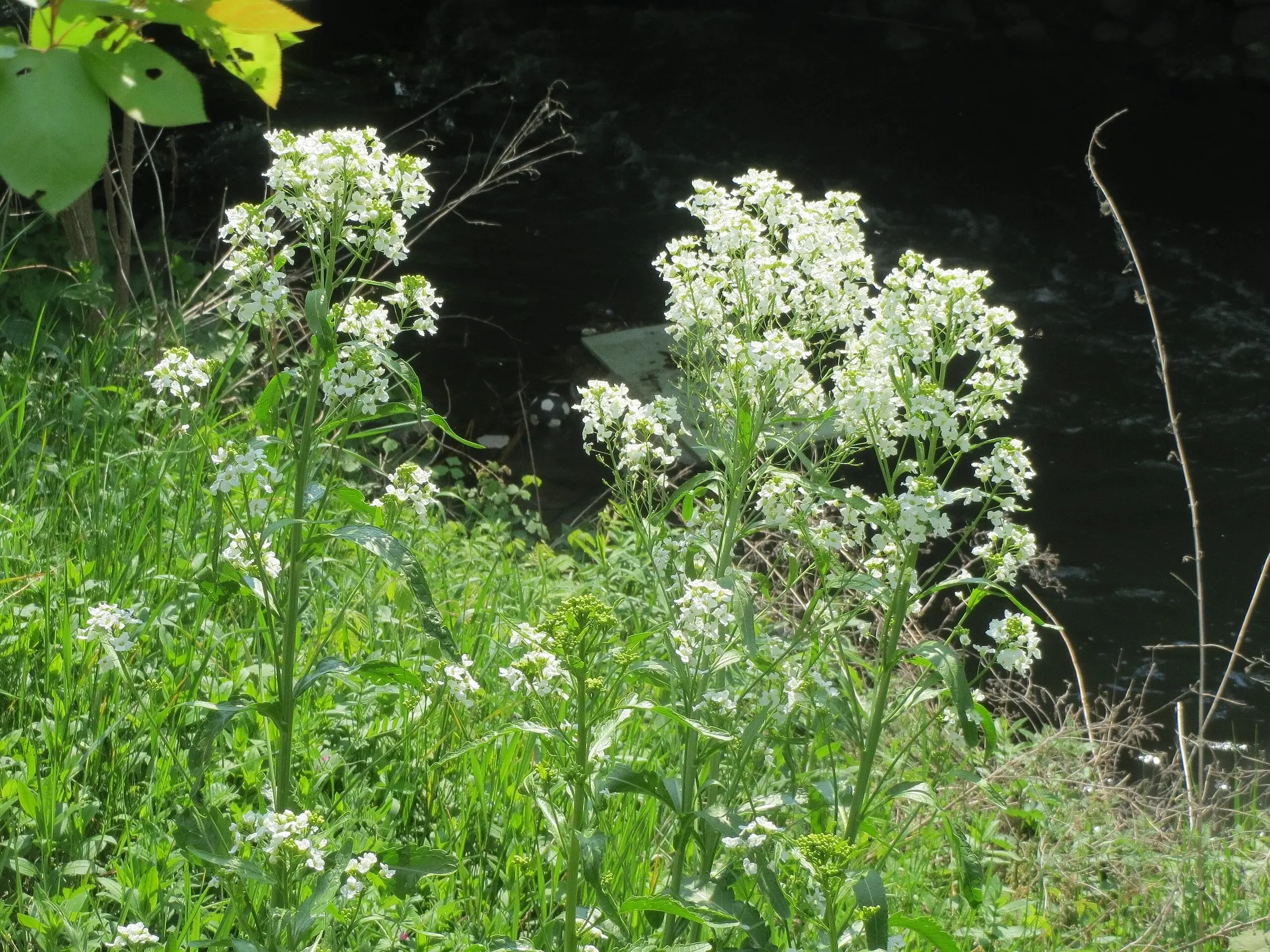A | B | C | D | E | F | G | H | I | J | K | L | M | N | O | P | Q | R | S | T | U | V | W | X | Y | Z

Names
Cochlearia armoracia
Description
Perennial plant that can grow up to five feet. Leaves are simple and grow alternately and toothed. Flowers are small and white with four petals.

Concern Level
Only during drought conditions, unpalatable. Must be eaten in large quantities to be toxic.
Toxic Parts
The root.

Symptoms
Gastrointestinal upset, increased sweating, lack of coordination, weakness, disorientation.
Danger
Contain glucosinolates which irritate the digestive system.

More Information
*It should be noted that we are not veterinarians. This information is written specifically for horses and should be used for reference purposes only. If you think your horse has eaten something toxic call your vet right away.